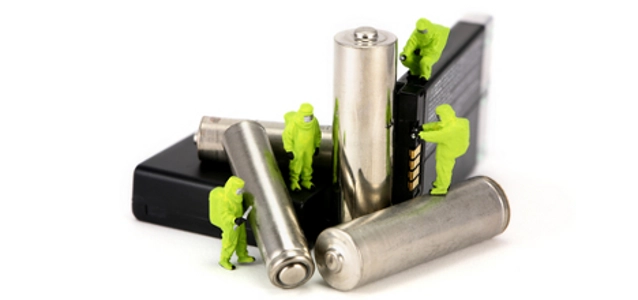
European batteries to become even greener
Last year, the European Council adopted a new regulation that aims to strengthen sustainability rules for batteries and waste batteries. The regulation seeks to ensure that the batteries are safe, sustainable and competitive, covering the entire life cycle of batteries — from production to reuse and recycling. But what does the industry say?
The regulation of the European Parliament and the Council will apply to all batteries including all waste portable batteries, electric vehicle batteries, industrial batteries, starting, lighting and ignition (SLI) batteries – which are mostly used for vehicles and machinery – and batteries for light means of transport such as electric mopeds and e-scooters.
The new rules aim to "promote a circular economy" by regulating batteries throughout their entire life cycle. The regulation establishes end-of-life requirements, including collection targets and obligations, material recovery targets, and extended producer responsibility.
When it comes to the collection target for producers, the EU wants to collect 63% of used portable batteries by the end of 2027 and 73% by the end of 2030. The EU has also introduced a dedicated collection objective for waste batteries for light means of transport – 51% by the end of 2028 and 61% by the end of 2031.
The EU also wants to see lithium recovery from waste batteries reach 50% by the end of 2027 and 80% by the end of 2031 – these targets could however be amended depending on market and technological developments as well as the availability of lithium.
The regulation also provides for mandatory minimum levels of recycled content for industrial, SLI batteries and EV batteries. These are initially set at 16% for cobalt, 85% for lead, 6% for lithium and 6% for nickel. Batteries will also have to hold recycled content documentation.
The recycling efficiency target for nickel-cadmium batteries has been set at 80% by 2025 and 50% by 2025 for other waste batteries.
But how does the industry view these changes?
“Given the plans to increase the importance of batteries (for example, related to the electrification of transport), a huge market will be created for companies processing battery waste,” says Paweł Ochyński, founder and CEO of Green Cell, a Polish producer and distributor of power solutions, who supports the changes introduced by the EU.
The CEO of the Polish company also points out that there is a persistent myth that batteries are harmful to the environment, despite ongoing technological advancements.
“There were indeed some risks associated with lead-acid batteries, but lithium-ion batteries are much safer. They also use valuable components such as cobalt, nickel, lithium, manganese, aluminum, and copper, for which the re-use of makes economic sense," Paweł Ochyński explains to Evertiq in an interview.
According to Paweł, other elements could also hold value, but products must be properly designed so that they can be easily recycled and reused. Control over the supply chain is also of great importance, as it allows for production optimisation.
“Take Tesla, for example, which uses vertical integration and can offer competitively priced cars. At Green Cell, we have our own products where we have focused on the circular economy and extending the product lifecycle for several years. Already at the design stage, we think about what will happen to the product after the end of its life, so that its components can be put back into circulation,” says Paweł Ochyński.
Paweł Ochyński notes that most provisions in the regulation are effective and align with the broad interests of both manufacturers and consumers.
“After all, the battery manufacturer wants to provide high-quality, durable and safe products that are as environmentally friendly as possible. This is how brand trust is built. However, this affects price competitiveness. Consumers also want to use a product that lasts for many years and is safe for both them and the environment, but they often lack knowledge about the subject and therefore make their choice based solely on price.”
On June 12, Paweł Ochyński will take the stage at Evertiq Expo Kraków 2024 and participate in a panel discussion led by Dr. Maciej Kawecki. Green Cell's Vice President of Production and Logistics, Grzegorz Trafiał, will also take the stage to give a presentation on rebuilding supply chains for the battery industry, focusing on micromobility.
